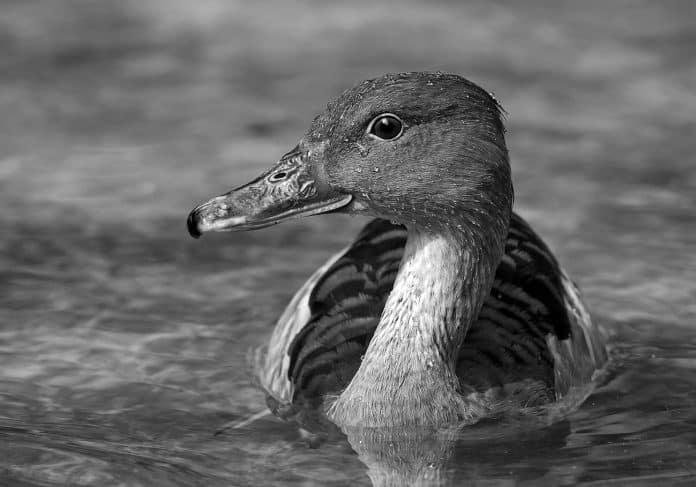Discover the Enchanting World of the Fulvous Whistling-Duck in Tanzania: A Birdwatcher’s Paradise
Tanzania, a country known for its stunning landscapes and diverse wildlife, is a haven for birdwatchers. Among the many avian treasures that can be found in Tanzania, the Fulvous Whistling-Duck stands out as a truly enchanting species. With its striking appearance and unique behaviors, this beautiful bird is a must-see for any birdwatching enthusiast.
The Fulvous Whistling-Duck, scientifically known as Dendrocygna bicolor, is a medium-sized waterfowl species native to Tanzania. It is characterized by its elegant plumage, with a rusty-colored body and a contrasting black face. One of the most distinctive features of this duck is its melodious whistling call, which can be heard resonating across the wetlands of Tanzania.
Habitat and Distribution of the Fulvous Whistling-Duck in Tanzania
The Fulvous Whistling-Duck is primarily found in the wetlands and marshes of Tanzania, where it thrives in the rich biodiversity of these habitats. Its distribution extends across the country, with sightings reported in national parks such as Serengeti, Ruaha, and Katavi. These wetland areas provide the ideal conditions for the Fulvous Whistling-Duck to feed and breed, making them prime locations for birdwatchers to observe this species in its natural habitat.
Unique Characteristics and Behaviors of the Fulvous Whistling-Duck
The Fulvous Whistling-Duck possesses a number of unique characteristics that make it a fascinating subject for birdwatchers. Its distinctive coloration sets it apart from other duck species, with its rusty body and dark face making it easily recognizable. This duck also has long legs and a slender neck, which allow it to wade through shallow waters in search of food.
In addition to its physical attributes, the Fulvous Whistling-Duck exhibits interesting behaviors that captivate birdwatchers. These ducks are highly social and often congregate in large flocks, creating a mesmerizing sight as they swim in unison across the water. They are also known for their elaborate courtship displays, where males perform intricate dances to attract females. Observing these behaviors in person is a truly awe-inspiring experience for any bird enthusiast.
Best Birdwatching Spots for the Fulvous Whistling-Duck in Tanzania

If you’re eager to catch a glimpse of the Fulvous Whistling-Duck in Tanzania, there are several key birdwatching spots that you should consider visiting. One of the top locations is the Serengeti National Park, renowned for its vast savannahs and abundant wildlife. Here, you can witness the Fulvous Whistling-Duck in its natural habitat, surrounded by the breathtaking beauty of the African landscape.
Another prime spot for birdwatching is Ruaha National Park, located in central Tanzania. This park is home to diverse ecosystems, including wetlands and rivers, where the Fulvous Whistling-Duck can be found. The birdwatching opportunities in Ruaha are unparalleled, with the chance to observe not only the Fulvous Whistling-Duck but also a wide variety of other bird species.
If you’re looking for a more off-the-beaten-path experience, consider visiting Katavi National Park. Situated in the remote western part of Tanzania, this park offers a truly untouched wilderness where the Fulvous Whistling-Duck can be spotted. The vast floodplains and seasonal lakes of Katavi provide a stunning backdrop for birdwatching, allowing you to immerse yourself in the beauty of nature.
Tips for Birdwatching the Fulvous Whistling-Duck in Tanzania
To make the most of your birdwatching experience in Tanzania, it’s important to come prepared. Here are a few tips to help you maximize your chances of spotting the Fulvous Whistling-Duck:
- Timing is key: The best time to observe the Fulvous Whistling-Duck is during the dry season, from June to October. During this period, water levels in the wetlands are lower, making it easier to spot these ducks as they forage for food.
- Bring binoculars and a field guide: A good pair of binoculars is essential for birdwatching, as it allows you to observe the Fulvous Whistling-Duck and other bird species up close. A field guide specific to Tanzanian birds will also be useful in identifying different species.
- Be patient and observant: Birdwatching requires patience and keen observation skills. Take your time to scan the wetlands and listen for the whistling calls of the Fulvous Whistling-Duck. Stay still and quiet to avoid disturbing the birds and increase your chances of spotting them.
- Hire a local guide: Consider hiring a local birdwatching guide who is familiar with the area and can help you locate the Fulvous Whistling-Duck. They can also provide valuable insights into the behavior and ecology of this species.
By following these tips, you’ll be well-equipped to embark on a successful birdwatching adventure in Tanzania and catch a glimpse of the captivating Fulvous Whistling-Duck.
Other Bird Species to Look Out for in Tanzania
While the Fulvous Whistling-Duck is undoubtedly a highlight for birdwatchers in Tanzania, the country is home to a myriad of other fascinating bird species. From the majestic African Fish Eagle to the vibrant Lilac-breasted Roller, Tanzania offers a rich diversity of avian life waiting to be discovered.
One such species is the Grey-crowned Crane, an elegant bird with a distinctive crown of golden feathers atop its head. This crane can be found in the grasslands and wetlands of Tanzania and is known for its graceful mating dances, making it a must-see for birdwatchers.
Another notable bird species is the Kori Bustard, the largest flying bird native to Africa. With its striking appearance and impressive size, the Kori Bustard is a true spectacle. Keep your eyes peeled for this majestic bird as you explore the plains and savannahs of Tanzania.
These are just a few examples of the many bird species that can be found in Tanzania. Whether you’re a seasoned birdwatcher or a novice enthusiast, Tanzania offers an incredible opportunity to witness the beauty and diversity of African birdlife.
Conservation Efforts for the Fulvous Whistling-Duck in Tanzania
The Fulvous Whistling-Duck, like many other bird species, faces various threats to its survival. Habitat loss and degradation, caused by factors such as agriculture and urbanization, pose significant challenges for these ducks. Additionally, hunting and poaching in some areas further endanger their populations.
To address these threats and protect the Fulvous Whistling-Duck, conservation efforts are being undertaken in Tanzania. Organizations such as the Tanzanian Bird Atlas Project and the Wildlife Conservation Society work tirelessly to monitor and conserve the wetland habitats that are crucial for the survival of these ducks.
By supporting these conservation initiatives and promoting sustainable practices, we can contribute to the preservation of the Fulvous Whistling-Duck and ensure its continued existence in Tanzania’s wetlands.
Recommended Birdwatching Tours and Guides in Tanzania
For those seeking a guided birdwatching experience in Tanzania, there are several reputable tour operators and guides who specialize in avian-focused expeditions. These professionals have extensive knowledge of the local bird species and their habitats, and can provide valuable insights and assistance during your birdwatching journey.
Some recommended birdwatching tours and guides in Tanzania include:
- Birding Tanzania: This tour operator offers customized birdwatching tours throughout Tanzania, with expert guides who are passionate about avian conservation and education.
- Nature Expeditions Africa: With a team of experienced birdwatching guides, Nature Expeditions Africa provides tailored birding safaris that cater to both beginners and experienced birders.
- Tanzania Birding: This specialized birdwatching tour operator offers a range of itineraries that focus on different regions of Tanzania, ensuring a comprehensive birding experience.
By choosing a reputable tour operator or guide, you can enhance your birdwatching experience in Tanzania and benefit from their expertise in locating and identifying the Fulvous Whistling-Duck and other bird species.
Planning Your Trip to Tanzania for Birdwatching the Fulvous Whistling-Duck
Before embarking on your birdwatching adventure in Tanzania, it’s important to plan your trip carefully to ensure a smooth and enjoyable experience. Here are a few key considerations:
- Travel documents: Check the visa requirements for entering Tanzania and ensure that your passport is valid for at least six months beyond your intended departure date.
- Vaccinations: Consult with your healthcare provider to determine if any vaccinations are required or recommended for your visit to Tanzania.
- Accommodation: Research and book accommodations in advance, especially if you plan to visit popular birdwatching destinations such as Serengeti or Ruaha National Park.
- Packing essentials: Pack lightweight and breathable clothing suitable for the tropical climate of Tanzania. Don’t forget to bring sunscreen, insect repellent, a hat, and comfortable walking shoes.
- Local customs and etiquette: Familiarize yourself with the local customs and etiquette of Tanzania to ensure respectful interactions with the local communities and wildlife.
By taking these factors into account and planning ahead, you can make the most of your trip to Tanzania and create unforgettable memories while birdwatching the Fulvous Whistling-Duck.
Conclusion: Why Tanzania is a Birdwatcher’s Paradise for the Fulvous Whistling-Duck
In conclusion, Tanzania offers a truly enchanting world for birdwatchers, with the Fulvous Whistling-Duck taking center stage as one of the most captivating species to observe. From its striking appearance to its unique behaviors, this duck is a true delight for any bird enthusiast.
With its diverse wetland habitats and abundant birdlife, Tanzania provides the perfect setting to witness the beauty and wonder of the Fulvous Whistling-Duck. By visiting the best birdwatching spots, being prepared with the right equipment, and supporting conservation efforts, you can embark on an unforgettable birdwatching adventure in Tanzania.
So, pack your binoculars, immerse yourself in the natural wonders of Tanzania, and discover the enchanting world of the Fulvous Whistling-Duck – a birdwatcher’s paradise awaits!
For more articles related to Wildlife in Tanzania (Animals), click here!

































